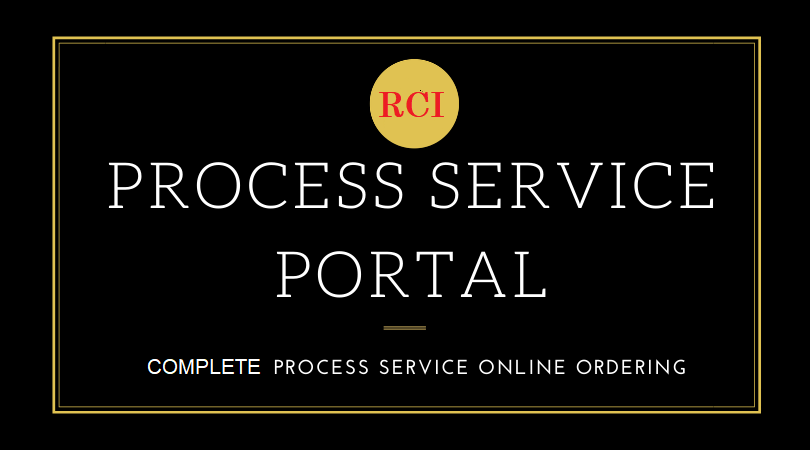Investigations on Indian Reservations
With over 300 Indian Reservations throughout the US, it’s probable that at one time or another, you might need to attempt service on an individual who resides within an Indian Reservation. It is undoubtedly a unique service request, and it requires special care due to the federal laws that protect Indian Reservations and those who reside within them.

Here are some tips to make your next service go as smoothly as possible. Be respectful and responsible when attempting service on an Indian Reservation.
Understand The Tribal Law
Process severs are often tasked with handling challenging services — it’s simply part of the job. However, serving an individual on an Indian Reservation is a bit more complex than the average tough serve. It’s more akin to attempting out of state or international service due to the laws created from the Native American Graves Protection and Repatriation Act, which was passed in 1990.
According to the U.S. Government, Indian tribes “possess a nationhood status and retain inherent powers of self-government.” And with that ruling, each tribe creates and enforces its own tribal law. What may be permissible for one Indian Tribe may not be permissible in another. For example, the Arizona Courts website provides a list of tribes and how each one handles civil process service, which highlights what different tribes require. Leading Edge Legal Ed, LLC has put together an expansive guide with addresses, phone numbers, enrollment office staff names and email, and information on how process service works on each tribal land in Arizona. You can view that information here: Arizona Tribal Courts and Enrollment Offices. Always read up on the requirements and/or check with the tribe before attempting service. If you’re not sure where to begin, you might start with looking for governing information on the particular tribe, or consulting the US Bureau of Indian Affairs for more help.
Process server Scott Ferlisi advised, “I have served a few services in southern California and found it best to talk to the local law enforcement agency prior to talking to the reservation police. The local law enforcement may be able to give you some insight.”
Consult The Tribal Court
Unless experienced, many process servers do not realize that they have to consult with the tribal police and/or courts in order to arrange for service. Because Indian Reservations are protected, process servers would need to have permission to enter and attempt service on the intended recipient. For example, the Mojave Indian Tribe has its own process servers who effectuate service according to tribal laws. If the individual you need to serve doesn’t live within a tribe that has a website, a database of consultation contacts for each tribe within the U.S. is available online, so be sure to find and contact a consultation contact before attempting service.
Although Canada has different laws regarding Indian Reservations, one process server, Gianni Donatucci, provided advice that is applicable anywhere: “We have served on Indian Reservation before. It is not necessarily easy (or safe). For this reason, we always call the reservation police and have them meet us at the entrance of the reservation and escort us to the location we need to attend to.”
File Appropriate Documents
Just as you would make sure documents are filed in the appropriate courts if you were attempting service for an out of state case, you also might need to have documents filed with the tribal court. It is often required that the summons and complaint, as well as any other pertinent documents be filed with the tribal court. Be sure to file documents, even if they have already been filed in the state in which the case originated, and even if the Indian Reservation is located within that state because the tribal court is in its own jurisdiction.
Since many state governments (and Tribal governing bodies as well) have gone online, you may be able to download and complete the necessary documents prior to approaching the respective courts. For Coconino County, Arizona, we were able to find a packet online that highlights the details of filing and attempting service on Indian Reservations, along with the required paperwork. Look to the county in which the documents originated and in which they are to be served to make sure you’ve completed all the necessary paperwork.
If All Else Fails
If you are unable to have the individual served or serve the individual yourself on the reservation, you might be able to effectuate service when they are off the reservation. A tip that process server John-Michael Zimmerle shared explained that “It is a matter of sovereignty and respect. Generally speaking, the treaties with indigenous governments preclude local courts from having jurisdiction over their lands or peoples on their lands reserving U.S. legal action to the federal courts. Similarly, tribal courts have no jurisdiction over non-indigenous peoples. Tread lightly and respect the age-old agreements. If your state permits, perhaps you can serve the individual by certified mail (restricted delivery). While reservations may always bar you from serving civil process on their land, the U.S. Post Office is on U.S. property.”
Keep in mind that service might have to be effectuated via certified mail. Double-check with the courts, and make sure you have exhausted all legal and respectful attempts to complete service. Provided you have taken the appropriate steps to attempt service and still aren’t able to effectuate service, it may be up to a Federal Marshal to serve the documents. Process server Kyle Stauffer commented that “People do actually go to the reservation to hide, and it pretty much takes a Federal Marshal after that.”
Be Advised
Service on an Indian Reservation isn’t your run of the mill service, and as we explained, it can get complicated. It might be helpful to establish relationships with local tribes if you anticipate having to attempt service on individuals in the reservation regularly.

These are just a few tips to point you in the right direction of completing a safe, respectful service on an Indian Reservation. Do you have any other tips for your fellow process servers? If so, please leave them in the comments.








